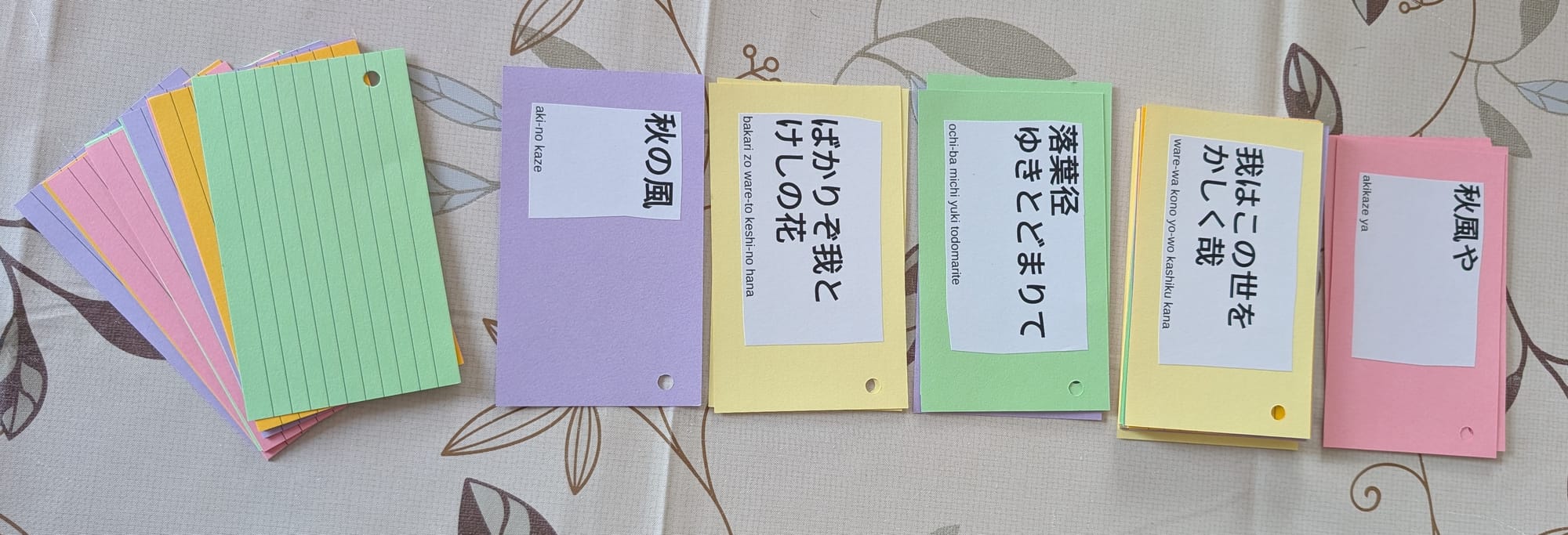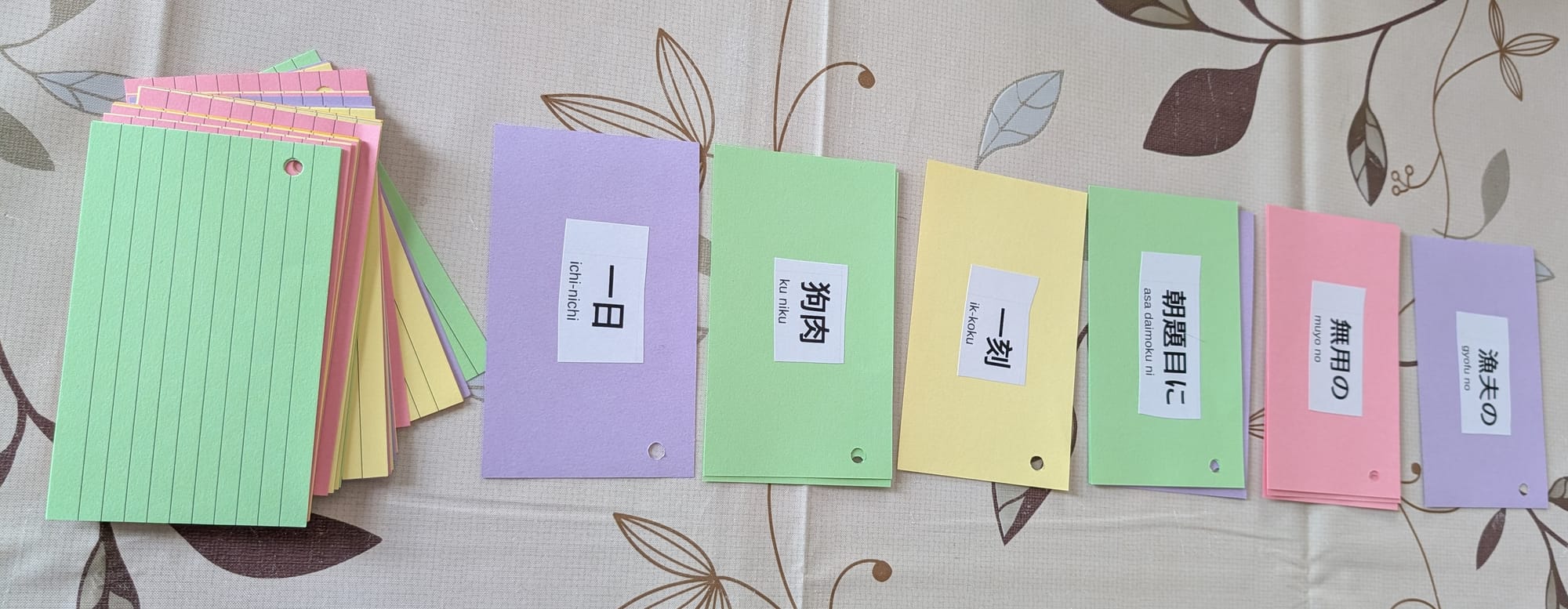Things went GREAT playing the "Know Your Haiku" card game with the meditation group, and I did indeed get invited back to play a different version next week! This is what the group leader wrote to me after:
Thank you so much for the game today. It was terrific (seriously!). ❤️💕
The version we'll play next week is not matching features (that's the version for beginners), but instead matching quotes: the idea is that there are quote cards, and the players look to see if one of the haiku that they have is a good pair for the idea in the quote. Most of the quote cards in my stack right now are about Zen aspects of haiku (which works well for a meditation group), and I'll add some more cards with quotes from the meditation writers that the group has been reading (Gil Fronsdal, Pema Chodron). I'll report back after that happens next week!
Meanwhile, I've been working on proverb-based games for my language students and also for my own Japanese language-learning... and I realized that because haiku naturally break up into two parts, just as proverbs do, I can play the same games with haiku! In particular, I can play Solitaire Accordion, which is a really fun and very absorbing solitaire game. I tried it out today, and it worked perfectly. If you don't know Solitaire Accordion, here are the rules at Wikipedia. It's one of my favorite solitaire card games, and very addicting. I throw in 4 wild-cards to make it more likely to win; without the wild-cards, it's nearly impossible to win, but it's still fun to play even when you don't win. An alternative way is to lay out all the cards at once (no wild-cards), but I prefer one card at a time with the wild-cards since my goal is to focus on each piece of haiku, card by card by card.
There are 12 different haiku, split into 2 parts, so that's 24 cards. I then duplicate those cards, which makes 48 cards, plus 4 wild-cards for a total of 52 cards, just like in a regular deck of cards. Instead of suits, I use colored index cards. So, the four halves of each haiku poem appear on each of the card colors: yellow, green, pink, purple. The wild-cards are gold. Here's what it looks like as the game is being played:

So, there is lots of reading out loud (I'm constantly speaking Japanese while I play), along with matching the split halves of a haiku... and just the fun of seeing if you can get it down to just a few stacks in the end. To win, you're supposed to get it down to just one stack. That's seriously rare, but it doesn't matter: even just getting it down to a few stacks in the end feels great. And while 12 haiku may not feel like a lot, that's around 60 vocabulary items. Admittedly, I'm not learning all the kanji yet and am relying a lot on the romaji (no English on the cards!), but it's also giving me passive practice with the kanji. And I know it's working, because now when I read Japanese haiku, I recognize more and more vocabulary on sight.
I play the same game with proverbs in Japanese, so here's how that looks:

Yes, I know all these haiku and proverbs is a very strange way to learn Japanese, but it is very motivating, and I am building up a big vocabulary. A mostly haiku vocabulary, ha ha. But that works for me: just like haiku themselves, haiku vocabulary feels very soothing. And because the world of proverbs is very concrete too, often involving animals, plants, the natural world, etc., the proverb vocabulary and haiku vocabulary resonate nicely.
I'm having dinner tonight with a friend who is taking the regular beginning Japanese course on the UT campus this semester; it will be fun to compare our different learning experiences. When I checked in with him a week ago, I was definitely having WAY more fun. Meanwhile, I'm going to be very curious to learn from him about how they present the Japanese verb. I am totally getting the nouns and particles, but the verbs really are a complete mystery to me so far; I'm relying on the English translations of the haiku for the verbs, and when the translations are sometimes all over the place, that's how I know the verb system has got to be very different from English. I'll be excited when I am ready to learn more about that... later. I've got plenty of nouns and particles to keep me busy, not to mention eventually starting to learn all these beautiful kanji!